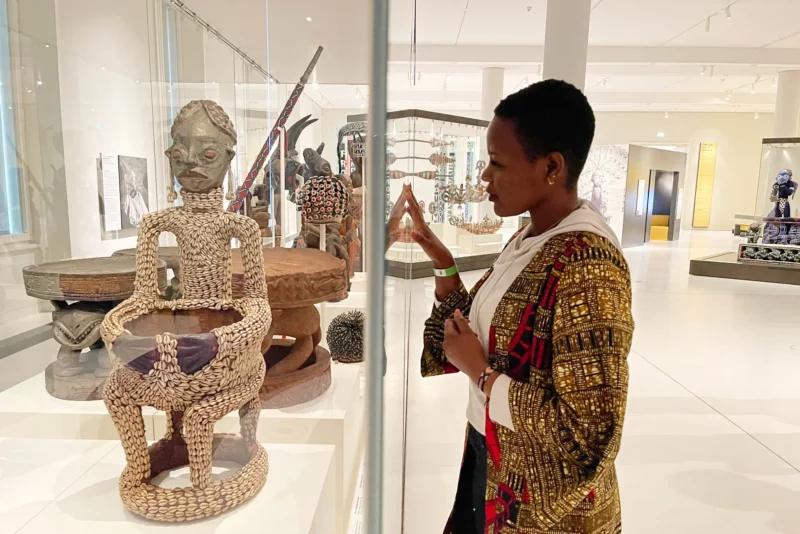How 4 Countries Are Preparing to Bring Stolen Treasures Home
Share
Explore Our Galleries
Breaking News!
Today's news and culture by Black and other reporters in the Black and mainstream media.
Ways to Support ABHM?
Catherine Hickley, The New York Times
While attention is focused on western museums and governments giving back looted items, heritage workers in the global south are laying the groundwork for new claims.

The discussion about returning wrongfully acquired heritage to countries in the global south has, until now, largely focused on the steps taken by Western museums and governments. But away from the spotlight, in countries like Cameroon and Indonesia, heritage workers, government officials and activists are laying the groundwork to reclaim long lost treasures, a process most expect will take decades.
Identifying the objects and securing their recovery is just one part of the task. Challenges include establishing who will own and take care of the artifacts, upgrading museum infrastructure, involving communities and awakening public interest.
“We have an enormous mission,” said Placide Mumbembele Sanger, a professor at the University of Kinshasa who is advising the Democratic Republic of Congo’s government. “This is not something we can complete in five years,” he added. “It will be a long process.”
The trigger for the global movement toward restituting plundered heritage was a 2017 pledge by President Emmanuel Macron of France, in a speech in Burkina Faso, to permanently give back African patrimony in French museums. Since then, Germany, the Netherlands, France and Belgium have set up national guidelines to process claims and return artifacts. A milestone in this process came last year, when Germany transferred ownership of 1,100 Benin Bronzes to Nigeria.
Read more about the initiative in the original article.
Learn more about the time period many of these artifacts came from in this virtual exhibit.
Find more Breaking News here.









Comments Are Welcome
Note: We moderate submissions in order to create a space for meaningful dialogue, a space where museum visitors – adults and youth –– can exchange informed, thoughtful, and relevant comments that add value to our exhibits.
Racial slurs, personal attacks, obscenity, profanity, and SHOUTING do not meet the above standard. Such comments are posted in the exhibit Hateful Speech. Commercial promotions, impersonations, and incoherent comments likewise fail to meet our goals, so will not be posted. Submissions longer than 120 words will be shortened.
See our full Comments Policy here.